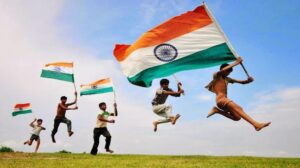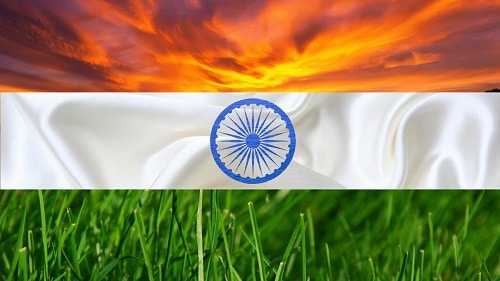The Indian Sovereignty
Sovereignty makes a government independent from others and prevents external forces to interfere in government matters. According to Coole “A country is said to be Sovereign if there exists within itself supreme and absolute power, acknowledging no superior”. India declare itself as an Independent country on 15th August 1947 and the Constitution solemnly resolve the Republic of India to be a Sovereign nation. We adopted the idea of sovereignty from the fifth article of the Ireland constitution. In India, Sovereignty began from the uppermost layer of International independence to the bottom level of self-independence.
India proclaims its external sovereignty at the International level and the independence of the nation got accepted by other countries in the world. At the geopolitical level, one cannot stand fully Independent particularly after the liberalization policies of 1990. The multilateral ties among other countries, on one hand, has brought development to the economy of the nation but on another hand has pulled the strings of tension and propaganda. There also exist a threat to digital sovereignty to the nation when multinational companies like Twitter and WhatsApp disagree to amend their privacy rules. The prevailing border issues with Pakistan, China and Sri Lanka are still a threat to the nation creating havocs on external and internal sovereignty.

Internally, sovereignty emphasis the relation of state and people within its territory. Also, the nation upholds the ideal of popular sovereignty where the people are considered to have supreme power. The political sovereignty lies with the people and the legislative sovereignty lies with the parliament. At times the indifference in the people opinion with legislative sovereignty leads to conflict and riots within the territory. The farm bill was one such incident that raises conflicts at the national level raising the threat to internal sovereignty. Here the ideals of democratic socialism work and neutralize the issues through negotiations within government and people.
In microscopic level, Individual within the territory of the nation enjoys sovereignty. The constitution guarantees each person fundamental rights (Article 14-35) and directive principles of state policies (Article 36-51). No person has the right to discriminate against others on behalf of cast creed colour sex etc. The government also protect the rights of minorities, senior citizen, Transgender, beggars and other marginalized sessions through effective policies like protection and welfare of parents and senior citizens act, 2007; Transgender person (Protection) Act, 2019; Beggars Act etc. These policies and schemes to enhance the wellbeing of people and help in meeting their needs, thus protecting individual sovereignty.
The pandemic has spread distress and disparities in the community leading to hardships in both international and internal systems of the nation. This is a juncture in Indian history but is also an opportunity to strengthen the fundamentals of Indian Sovereignty. By protecting the independence of the nation from geopolitical competitions, by bringing effective policies and programmatically implementing them, by ensuring the freedom and rights of individual let’s fulfil the dream of a self-sufficient, independent nation. An Atma Nirbhar Bharath.
[social-share align=”left” buttons=”facebook,twitter,pinterest,linkedin,whatsapp,sms,copy”]
References:

